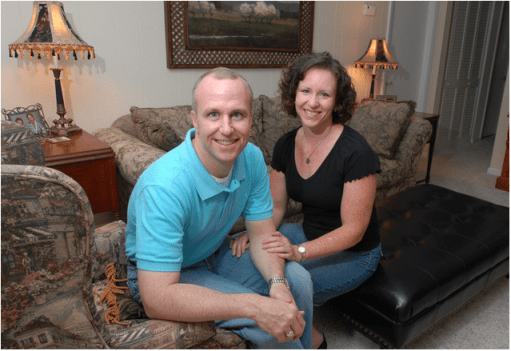Although Exodus International, America’s premiere religious “conversion therapy” organization, has been backpedaling for some time, probably no one expected to ever see what happened today: Exodus’s president, Alan Chambers, has posted a comprehensive apology to the gay community on their website.
The apology, titled simply “I Am Sorry,” seems genuinely heartfelt in many regards, and speaks to specific instances which Exodus apparently now realizes it’s responsible for.
Friends and critics alike have said it’s not enough to simply change our message or website. I agree. I cannot simply move on and pretend that I have always been the friend that I long to be today. I understand why I am distrusted and why Exodus is hated.
Please know that I am deeply sorry. I am sorry for the pain and hurt many of you have experienced. I am sorry that some of you spent years working through the shame and guilt you felt when your attractions didn’t change. I am sorry we promoted sexual orientation change efforts and reparative theories about sexual orientation that stigmatized parents. I am sorry that there were times I didn’t stand up to people publicly “on my side” who called you names like sodomite—or worse. I am sorry that I, knowing some of you so well, failed to share publicly that the gay and lesbian people I know were every bit as capable of being amazing parents as the straight people that I know. I am sorry that when I celebrated a person coming to Christ and surrendering their sexuality to Him that I callously celebrated the end of relationships that broke your heart. I am sorry that I have communicated that you and your families are less than me and mine.
More than anything, I am sorry that so many have interpreted this religious rejection by Christians as God’s rejection. I am profoundly sorry that many have walked away from their faith and that some have chosen to end their lives. For the rest of my life I will proclaim nothing but the whole truth of the Gospel, one of grace, mercy and open invitation to all to enter into an inseverable relationship with almighty God.
Does this mean that Exodus will disband or that it now opposes conversion therapy? Probably not. Chambers also wrote that “Because I do not completely agree with the vocal majorities in either group and am forging a new place of peaceful service in and through both, I will likely continue to be an outsider to some degree,” and “I cannot apologize for my deeply held biblical beliefs about the boundaries I see in scripture surrounding sex… I cannot apologize for my beliefs about marriage.” While Chambers can’t necessarily speak for all of Exodus, it seems like he’s saying that his beliefs about issues like the sinfulness of homosexuality remain unchanged, and perhaps his views about the efficacy or worthwhileness of conversion therapy — the wording of his apology was careful in that he talks about how “some of you” felt shame when conversion therapy proved ineffective. But it does seem like Chambers wants to change how those beliefs affect other people, saying that “…I will exercise my beliefs with great care and respect for those who do not share them.”

Although Exodus made a statement last year that it would no longer use language that suggested it could “cure” or “change” homosexuality, that’s a far cry from actually acknowledging the lives that have been irreparably damaged and, in some cases, ended by the pseudoscience attempting to “fix” sexual orientation for religious or gay-panic-related reasons. Chambers’ language in this apology implies that he actually has learned something about what the repercussions of his work have been. He’s also taking steps for active reconciliation — this apology coincides with a television broadcast of “God & Gays” with Lisa Ling, during which Chambers will sit down with people affected by his organization in a process that’s similar to a formal restorative justice process.
Of course, while this is undeniably a positive step, it may ring hollow for people who are still struggling with the problems Chambers is apologizing for. Acknowledging the incredible harm wrought by ex-gay programs doesn’t make it go away; many might argue, very fairly, that paying for therapy would be a more meaningful gesture. But especially for people whom have carried shame their whole lives about feeling unwelcome in their religious communities, hopefully this statement can be affirming. And although Chambers gives us the disclaimer that “…some within the communities for which I apologize will say I don’t have the right, as one man, to do so on their behalf,” hopefully other leaders within the religious right will find this example inspiring, if not in a way that actually changes their views, perhaps in a way that calls into question the degree to which other people need to suffer for them.







